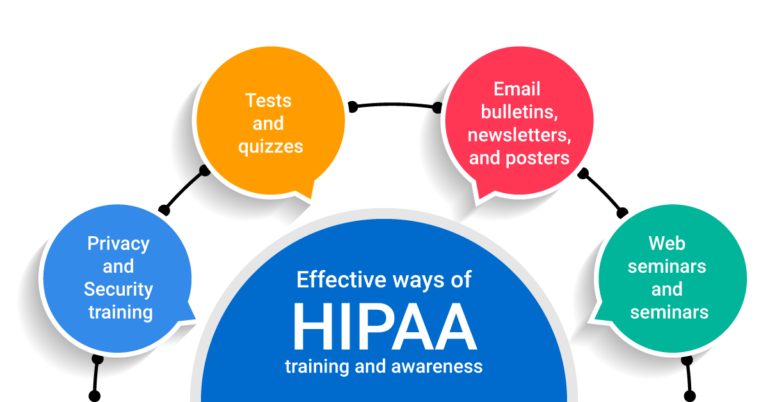What HIPAA Training Requirements Do You Need to Fulfill?
The Health Insurance Portability and Accountability Act (HIPAA) is one of the most critical legislation covering the healthcare industry. The law was made to simplify the healthcare system and help reduce medical costs. Now it’s more known for ensuring patient security and privacy.
Companies with access to Protected Health Information (PHU) are required to adhere to HIPAA rules. However, this legislation is massive, complex, and aggressive. It’s updated constantly to reflect the times and changing technology. Violating HIPAA rules mean hefty fines and criminal charges.
HIPAA training for business associates and covered entities are necessary if you want your company and staff to become compliant. Training will vary depending on the type of company. But there are general requirements to fulfill.
Who Needs Training?
The law requires that individuals who handle personal health information undergo compliance training. All healthcare workers – from doctors, nurses, front desk personnel, and administrators – should be trained.
Health insurance companies and healthcare clearing houses must also train for HIPAA compliance. Third-party organizations that provide services and products that access PHI are required to undergo training.
HIPAA training is mandatory for all employees of certain organizations. The size of the company or financial cost has no bearing on training. Even a small business with one administrative staff is still expected to be HIPAA compliant if handling personal health information.
Aside from the mandatory training of employees, companies are required to provide refresher training courses at least once a year. Online training is also an option, especially for covering updates on HIPAA rules and regulations.
What are the HIPAA Training Requirements?
HIPAA training requirements are vague. The topics covered depend on whether the company is a Covered Entity or a Business Associate. Covered entities are mandated to learn and comply with the Privacy Rule training standard. However, both groups are required to follow the Security Rule training standard. It applies to all employees whether they create, discuss, or transmit PHI or not. With there being multiple large modules to learn, most companies that need training for their employees or teams in order to stay compliant, whilst limiting the amount of time spent in training, often look to explore the best micro learning apps. These apps often offer concise, targeted modules that can help maintain compliance without overwhelming staff with lengthy training sessions.
At the very least, your HIPAA training for business associates and covered entities should cover the following modules:
- HIPAA Overview: it’s ideal to start the training with a quick overview. Every employee must understand the purpose and objectives of HIPAA. This module will also teach them how compliance rules apply regarding unauthorized access to personal health information.
- HIPAA Terminologies: Many workers might be unfamiliar with the HIPAA lexicon. This could lead to a misinterpretation of company policies and procedures. It’s best to introduce the common terms used in HIPAA compliance before delving deeper into the training.
- HITECH Act: This law pushed for the use of health-based technology in the industry. It was pioneered by the Meaningful Use initiative, which then became the Promoting Interoperability program. Studying the HITECH Act is necessary for IT workers or those with access to IT systems.
- Main HIPAA Regulatory Policies: The legislation is defined by five regulatory rules. These are the Omnibus Final Rule, Privacy Rule, Security Rule, Enforcement Rule, and Breach Notification Rule. The first three rules are critical and should be discussed with all employees.
- Patient Rights: The Privacy Rule covers Patient rights. But some healthcare administrators and staff might need to have a more thorough discussion of handling requests for PHI access, giving patients Privacy Notices, or securing their consent.
- Disclosure Rules: This is a key module that must be discussed with all employees. These rules apply to all workers regardless of their job function. It should be taught alongside the Privacy and Security Rules to emphasize the Minimum Necessary Standard and allowable disclosures.
- Violations and Penalties: HIPAA rules are strict and come with severe consequences when violated by a company, employee, or even the patient. The types of sanctions and penalties should be emphasized. The discussion should ideally include the company’s sanction policies and their effect on the employee.
- Violation Prevention: This module should be in training and refresher courses for HIPAA compliance. It can be an overview of the best practices to ensure compliance. It can be tailored to ensure relevance to specific worker groups.
- HIPAA Employee Compliance: There should also be training on how to be a HIPAA-compliant employee. This is a good module to use for training new employees and in a refresher course. The company can include compliance Do’s and Don’ts, procedures for reporting violations, or unsecured PHI.
Proper HIPAA training for business associates and covered entities is necessary to ensure compliance. Training requirements must be met every year and done in a way that compliance becomes second nature to the workforce.
READ MORE: Feeling More Comfortable in Your Body

